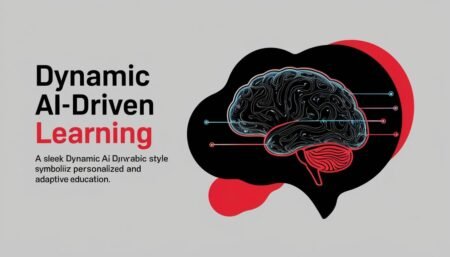Advancements in artificial intelligence are reshaping retail, enhancing decision-making, and improving customer interactions.
The e-commerce industry is undergoing significant transformation, driven by advancements in artificial intelligence (AI). By leveraging AI capabilities, businesses can analyse data, predict trends, and automate operations, thereby empowering them to make informed decisions and maintain a competitive edge. As reported by Intelligent Living, the integration of AI into e-commerce operations is redefining the landscape of online retail, particularly in areas such as pricing strategies and customer engagement.
AI in e-commerce encompasses algorithms and machine learning tools that process data and forecast customer behaviour, allowing businesses to enhance inventory management, optimise marketing strategies, and deliver personalised shopping experiences. This technology minimises human error and increases operational efficiency, ultimately enabling retailers to focus on long-term growth and innovation.
One of the notable applications of AI in this sector is dynamic pricing. Employing tools like an Amazon repricer, businesses can automatically adjust their product prices in response to competitors, market demand, and consumer behaviour. This dynamic pricing model helps retailers remain competitive while ensuring profitability, which is especially vital in high-competition environments like Amazon’s marketplace, where price fluctuations are common.
Moreover, AI is enhancing customer experiences through customised interactions. By analysing shopping patterns and preferences, retailers can recommend products tailored to individual consumer tastes and engage them with targeted email marketing campaigns. According to the report, these personalised experiences lead to increased sales and customer loyalty, as businesses that utilise AI for tailored engagements see higher rates of repeat purchases compared to their more traditional counterparts.
Inventory management, another critical aspect of e-commerce success, is being transformed by AI-driven predictive analytics, which can forecast product demand through analysis of sales data and seasonal trends. This technology allows retailers to maintain optimal stock levels, thus minimising storage costs and capitalising on sales opportunities. Additionally, AI tools can identify slower-moving products, enabling businesses to adjust their sales strategies, including discounts and promotions.
In customer support, AI-powered chatbots are revolutionising assistance services. These bots provide instant support by addressing common inquiries, tracking orders, and suggesting products, freeing up human agents to handle more complex issues. Operating around the clock, chatbots ensure that support is available to customers at any time, further enhancing the overall shopping experience. Advanced AI systems can also detect user sentiment, enabling a more nuanced interaction with customers.
AI’s role extends to marketing strategies as well, where data-driven campaigns are crafted through extensive analysis of consumer data. By recognising target audiences and predicting their purchasing behaviours, businesses can optimise their advertising efforts to ensure effective outreach. Furthermore, AI can autonomously manage email marketing, dispatching personalised messages triggered by specific customer actions, such as items left in shopping carts or recent purchases.
The increased prevalence of online transactions has also heightened the risk of fraud in e-commerce. However, AI technology plays a vital role in fraud detection, identifying unusual transaction patterns in real-time and flagging potential security threats. These protective measures safeguard both consumer and retailer interests through secure transactional processes, while also employing advanced encryption and monitoring to secure sensitive customer information.
Enhanced search functionalities, enabled by AI, ensure customers receive accurate and relevant product results. Natural Language Processing (NLP) facilitates searches using conversational queries, while visual search capabilities allow users to locate items by image. This improved search function is integral to a seamless shopping experience, potentially leading to higher conversion rates.
AI’s aptitude for data analysis is also harnessed to predict market trends. Retailers can utilise AI to identify emerging product categories and anticipate shifting consumer needs, thereby enabling them to adapt to changing market conditions effectively. By staying ahead of such trends, businesses can maintain a leadership position within their respective niches and seize new opportunities as they arise.
Finally, AI plays a crucial role in streamlining logistics and delivery operations. By analysing variables such as traffic patterns, weather conditions, and order volumes, AI-powered tools can optimise delivery routes, resulting in reduced shipping times and lower operational costs. This capability not only enhances customer satisfaction through timely deliveries but also supports overall business efficiency.
In conclusion, artificial intelligence is fundamentally reshaping the e-commerce landscape by providing a variety of tools designed to enhance decision-making, boost operational efficacy, and facilitate more personalised customer experiences. As businesses continue to integrate and innovate with AI technologies, their ability to stay competitive in the evolving market is likely to grow progressively stronger in the forthcoming years.
Source: Noah Wire Services
- https://market.us/report/ai-in-ecommerce-market/ – Corroborates the integration of AI into e-commerce operations, including data analysis, predictive analytics, and automation of tasks such as inventory management and personalized product recommendations.
- https://market.us/report/ai-in-ecommerce-market/ – Supports the dominance of AI in e-commerce, particularly in North America, and the significant growth driven by online shopping and advancements in AI technology.
- https://www.convertmate.io/blog/a-guide-to-ai-based-pricing-in-ecommerce – Details the application of AI in dynamic pricing, adjusting product prices based on competitor pricing, market demand, and consumer behavior to ensure competitiveness and profitability.
- https://www.convertmate.io/blog/a-guide-to-ai-based-pricing-in-ecommerce – Explains how AI-based pricing can lead to personalized pricing strategies, increasing conversion rates and customer satisfaction by tailoring prices to individual customers’ perceived value.
- https://www.sellerscommerce.com/blog/ai-in-ecommerce-statistics/ – Provides statistics on the adoption of AI in e-commerce, including its use in writing and optimizing listings, creating marketing content, and enhancing customer experiences.
- https://www.datafeedwatch.com/blog/ai-dynamic-pricing – Describes how AI-powered dynamic pricing works through real-time data analysis, segmenting products and customers, and setting optimal prices based on various data points.
- https://market.us/report/ai-in-ecommerce-market/ – Supports the role of AI in inventory management through predictive analytics, forecasting product demand, and maintaining optimal stock levels.
- https://market.us/report/ai-in-ecommerce-market/ – Highlights the use of AI-powered chatbots in customer support, providing instant assistance and enhancing the overall shopping experience.
- https://market.us/report/ai-in-ecommerce-market/ – Corroborates AI’s role in marketing strategies, including data-driven campaigns, recognizing target audiences, and predicting purchasing behaviors to optimize advertising efforts.
- https://market.us/report/ai-in-ecommerce-market/ – Explains how AI technology is used in fraud detection, identifying unusual transaction patterns and securing sensitive customer information through advanced encryption and monitoring.
- https://www.convertmate.io/blog/a-guide-to-ai-based-pricing-in-ecommerce – Supports the enhanced search functionalities enabled by AI, including natural language processing and visual search capabilities, leading to more accurate and relevant product results.
















